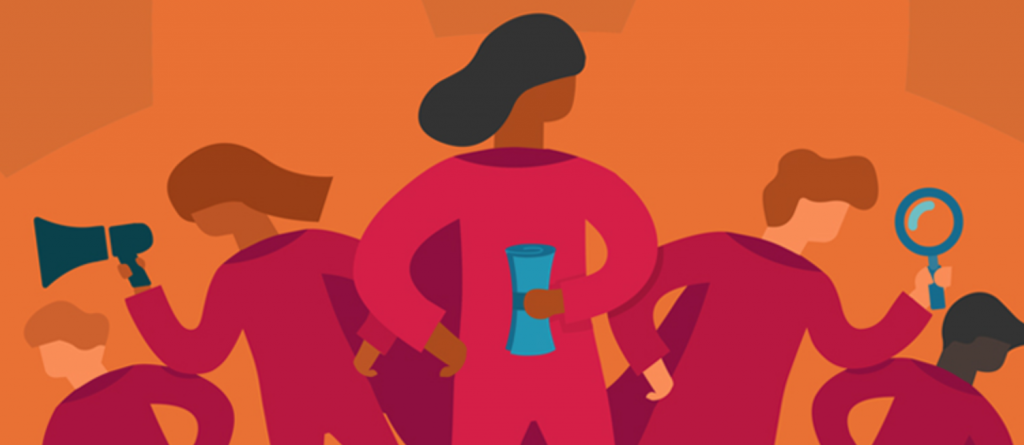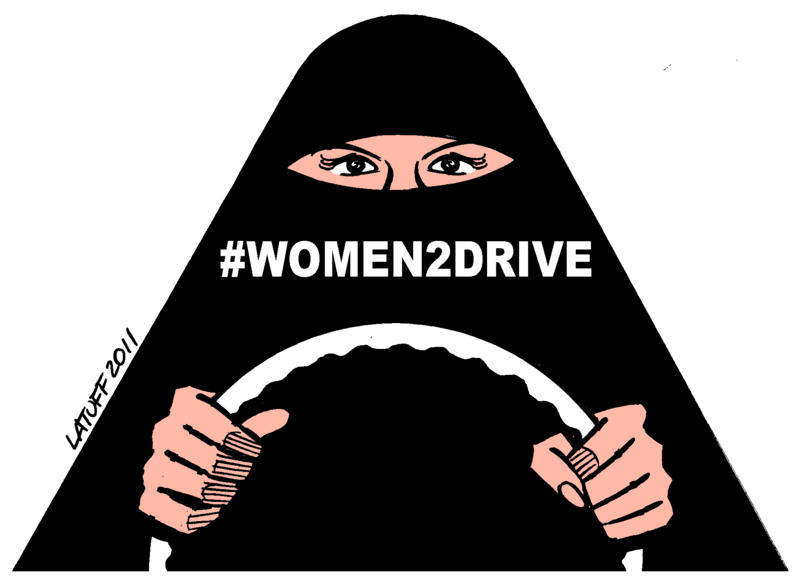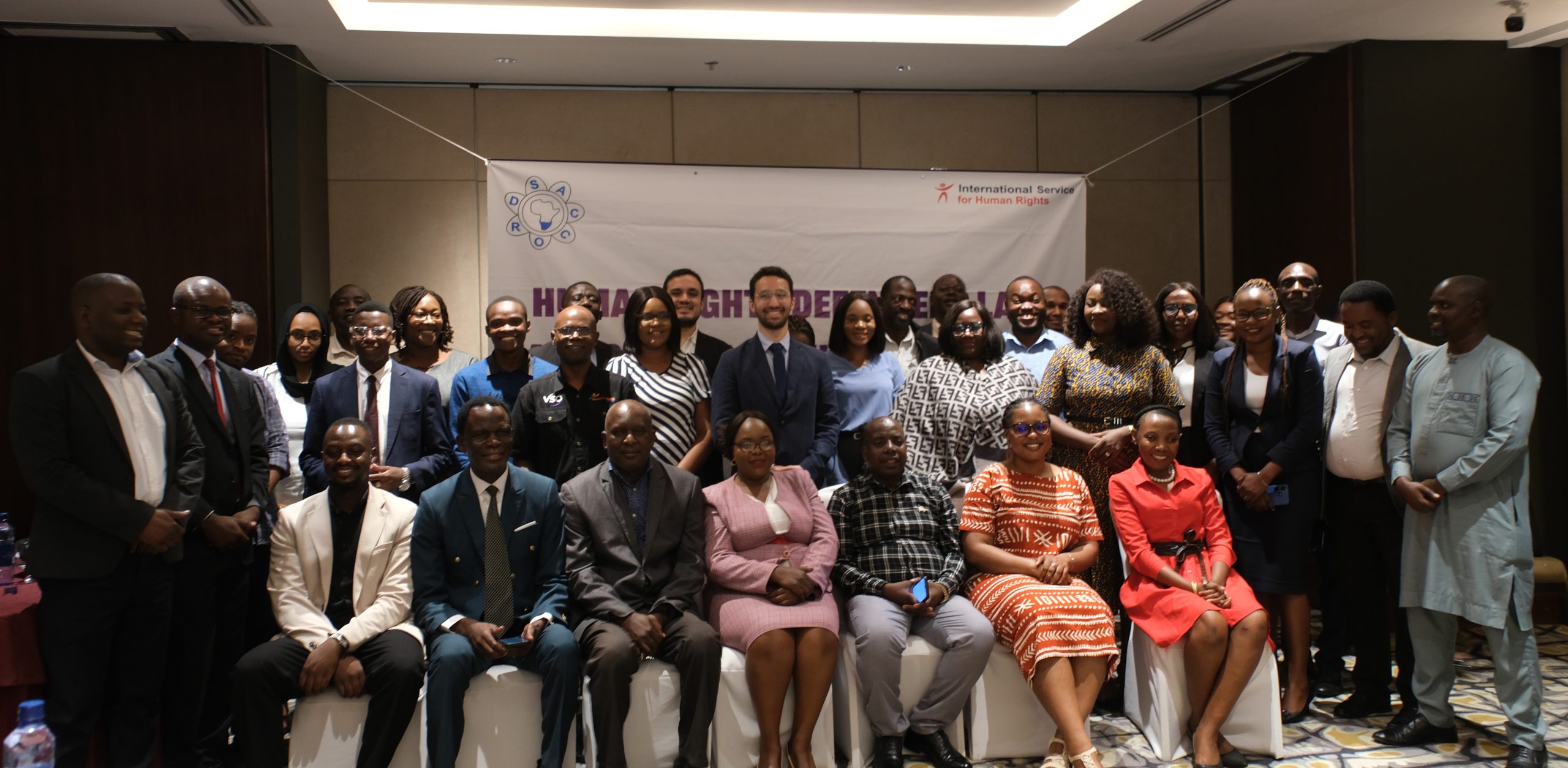We further call on the authorities to immediately reveal their whereabouts, allow them access to their families and lawyers of their choice, hold investigations in a transparent manner, and adhere to fair trial international legal standards; while we believe that all charges against them must be dropped and they should be immediately released. We are particularly alarmed that some of those arrested could be sentenced to prison for their peaceful and legitimate human rights work, including their decades-long campaigning to lift the driving ban – ironically barely a month before the authorities are set to finally lift it and enable women in the country to drive legally.
The undersigned groups know of at least 12 named human rights defenders whom Saudi authorities arrested in Saudi Arabia since 15 May 2018. They include advocates and supporters of the #Oct26driving, #Right2Drive and #IAmMyOwnGuardian campaigns who dared to speak openly about human rights violations in the country and are critical of state discrimination against women in Saudi Arabia. State media outlets have publicly declared seven women’s rights defenders and supporters of the women’s rights movement as traitors, including Loujain Al-Hathloul, a well-known women’s rights defender on social media who was arrested on 15 May; Dr. Eman Al-Nafjan, founder and author of the Saudiwoman’s Weblog, who had previously protested the driving ban; Aziza Al-Yousef, a prominent campaigner for women’s rights; Dr. Ibrahim Al-Modaimegh, a lawyer and human rights defender; writer Mohammad Al-Rabea; Abdulaziz Al-Mesha’al, businessman and board member of a women’s rights NGO; and an unnamed man. The state media also announced the arrest of Ibrahim Fahad Al-Nafjan.
Saudi human rights defenders also confirmed the arrest of four other women’s rights defenders who have since been released, including Dr. Aisha Al-Manae, Dr. Hessa Al-Sheikh and Dr. Madeha Al-Ajroush, who had taken part in the first women’s protest movement demanding the right to drive in 1990. At the time, 47 women had been arrested for driving and had lost their passports and their jobs. The arrests and subsequent release also included that of Walaa Al-Shubbar, a young activist well-known for her campaigning against the guardianship system. They are all academics and professionals who supported women’s rights and provided assistance to survivors of gender-based violence. On 23 May, Dr. Aisha Al-Manae was released from custody, possibly due to illness. Two days later, the Saudi authorities also released Dr. Hessa Al-Sheikh, Dr. Madeha Al-Ajroush, and Walaa Al-Shubbar. The conditions of their release remain unknown. Saudi authorities have since arrested Mohammad Al-Bajadi, a human rights defender and founding member of the Civil and Political Rights Association in Saudi Arabia (ACPRA).
On 19 May 2018, the official Saudi Press Agency (SPA) publicly acknowledged the arrest of seven of the rights defenders and accused them of treason and conspiracy against the country, stating that they were being charged with “organised action that encroaches on religious and national principles”, “suspicious communication with foreign entities”, “recruiting people working in government positions”, “funding hostile groups abroad to undermine Saudi national security, stability, social peace and to destroy the social cohesion.”
Shortly after, official and semi-official media outlets started naming and shaming detained human rights defenders on their front pages and social media accounts calling them “traitors” and “agents of embassies” (عملاء_السفارات#). It is believed that the SPA statement refers directly to the rights defenders named by Saudi media outlets.
SPA most recently reported that 17 people have been arrested since 15 May, and eight have been released, leaving five men and four women facing charges.
The current crackdown on women human rights defenders, which started in January 2018 when the Gulf Centre for Human Rights and local partners verified the arrest of at least two women human rights defenders, including Noha Al-Balawi and Maria Naji, is part of a larger crackdown on human rights defenders that has escalated over the past years. On 10 November 2017, the Specialised Criminal Court (SCC) in Riyadh sentenced woman human rights defender Naimah Al-Matrod to six years in jail. These latest arrests come following promises of reforms announced in 2017 as part of Saudi Arabia’s Vision 2030 plan, which Crown Prince Mohamed Bin Salman has enthusiastically promoted.
We are extremely concerned about the conditions and fate of detained human rights defenders, especially as their whereabouts remain unknown, including Loujain Al-Hathloul, Eman Al-Nafjan and Aziza Al-Yousef, who continue to be detained incommunicado. Saudi sources close to Loujain Al-Hathloul say that her detention is an act of reprisal for her engagement with international human rights mechanisms, including UN human rights bodies.
During the 69th session of the Committee on the Elimination of all Forms of Discrimination Against Women (CEDAW), three human rights NGOs presented a report that concluded that there had been insufficient progress on women’s rights in Saudi Arabia and that the Saudi authorities should address continuing violations of women’s rights more comprehensively.
Saudi Arabia issued a royal decree in September 2017 announcing that women would be allowed to drive as of 24 June 2018, offering the image promoted by Saudi-funded public relations firms that Saudi Crown Prince Mohammed bin Salman was a reformer. However, following the announcement, officials in the royal court specifically warned women human rights defenders to remain silent and told them not to give media interviews or post on social media.
We, the undersigned organisations, urge the Saudi authorities to:
- Release all persons detained solely for peacefully exercising their rights to freedom of expression, association and peaceful assembly immediately and unconditionally, and drop all charges against them;
- Immediately reveal the whereabouts of Loujain Al-Hathloul, Eman Al-Nafjan, Aziza Al-Yousef, Mohammad Al-Bajadi, Abdulaziz Al-Mesha’al, Ibrahim Al-Modaimegh, and Mohammad Al-Rabea and allow them immediate access to their families and lawyers of their choice;
- Guarantee in all circumstances the physical and psychological safety and integrity of all human rights defenders in Saudi Arabia;
- Immediately put an end to the harassment of women human rights defenders, including those who have been actively and bravely campaigning for women’s rights;
- Allow all members of Saudi society including women to exercise their rights, including their rights to freedom of expression, peaceful assembly and association, without any judicial harassment or other reprisals; and
- Guarantee in all circumstances that all human rights defenders, including women’s rights defenders, are able to carry out their legitimate human rights activities without fear of reprisal.
TAKE ACTION NOW!
We ask all supporters to please write a letter, send an email, call, fax or tweet using the hashtag #ReleaseSaudiWHRDs urging the Saudi authorities to act on the above recommendations.
Contact the following officials:
King and Prime Minister
His Majesty King Salman bin Abdul Aziz Al Saud
The Custodian of the two Holy Mosques
Office of His Majesty the King
Royal Court, Riyadh
Kingdom of Saudi Arabia
Fax: (via Ministry of Interior)
+966 11 403 3125 (please keep trying)
Twitter: @KingSalman
Ambassador Prince Khalid bin Salman bin Abdulaziz,
Royal Embassy of Saudi Arabia
601 New Hampshire Ave. NW, Washington DC 20037
Phone: (202) 342-3800 I Fax: 202 295 3625
Email: [email protected]
Contact Form: https://www.saudiembassy.net/contact
Twitter: @SaudiEmbassyUSA
Signatories:
- ARTICLE 19
- Al-Marsad – Arab Human Rights Center in Golan Heights
- Al-QST
- Americans for Democracy & Human Rights in Bahrain (ADHRB)
- Amnesty International
- Arabic Network for Human Rights Information (ANHRI)
- Association Marocaine des Droits Humains (AMDH)
- Association Tunisienne des Femmes Démocrates (ATFD)
- Cairo Institute for Human Rights Studies (CIHRS)
- CIVICUS: World Alliance for Citizen Participation
- Committee for the Respect of Liberties and Human Rights in Tunisia
- English PEN
- European Centre for Democracy and Human Rights (ECDHR)
- European-Saudi Organisation for Human Rights
- FIDH, within the framework of the Observatory for the Protection of Human Rights Defenders
- Front Line Defenders
- Gulf Centre for Human Rights (GCHR)
- Human Rights Watch
- International Service for Human Rights (ISHR)
- Lawyers for Justice in Libya
- Ligue algérienne des droits de l’homme (LADDH)
- Maharat Foundation
- Organization against Torture in Tunisia
- PEN International
- Secularism Is A Women’s Issue (SIAWI)
- Sisters’ Arab Forum for Human Rights (SAF)
- Tunis Center for Press Freedom
- Tunisian Association for the Defence of Academic Values
- Tunisian Forum for Economic and Social Rights
- Tunisian League for Human Rights (LTDH)
- Urgent Action Fund for Women’s Human Rights
- Vigilance for Democracy and the Civic State
- WHRD-MENA Coalition
- World Organisation Against Torture (OMCT), within the framework of the Observatory for the Protection of Human Rights Defenders
Photo: Carlos Latuff, Wikimedia Commons




